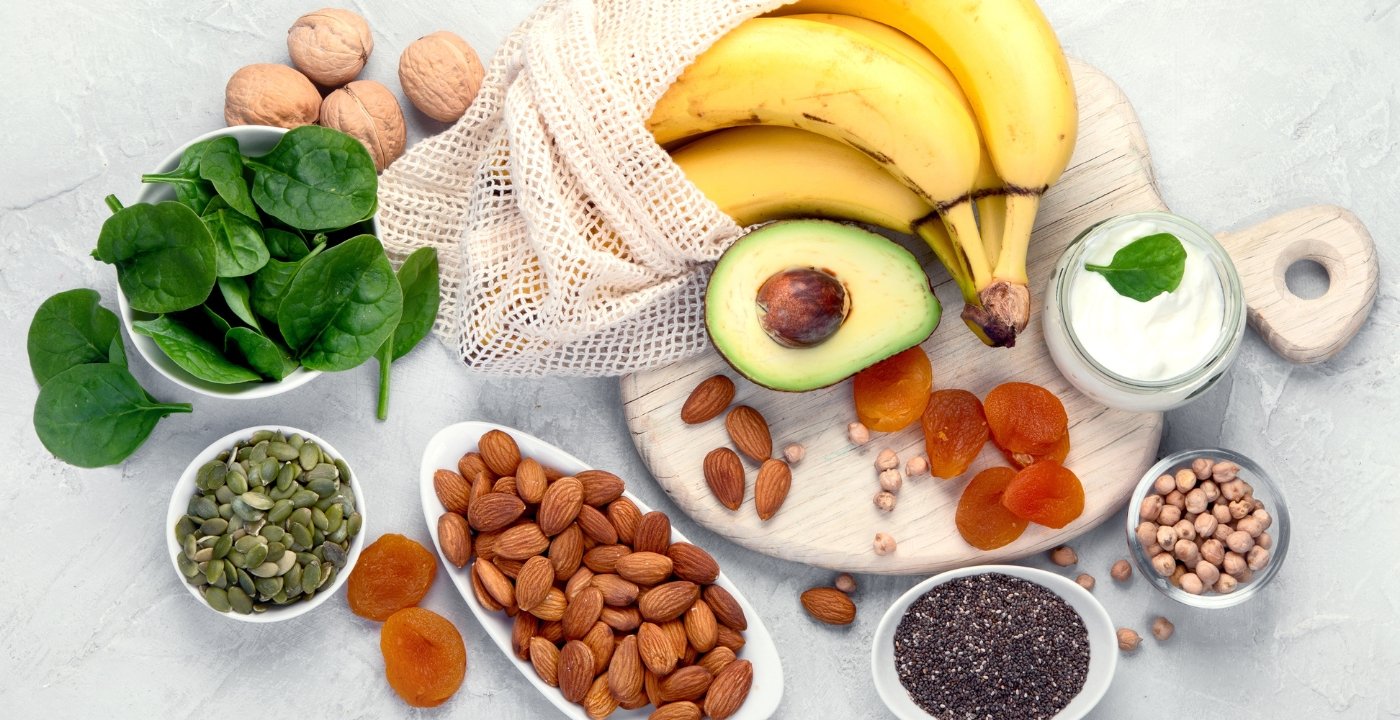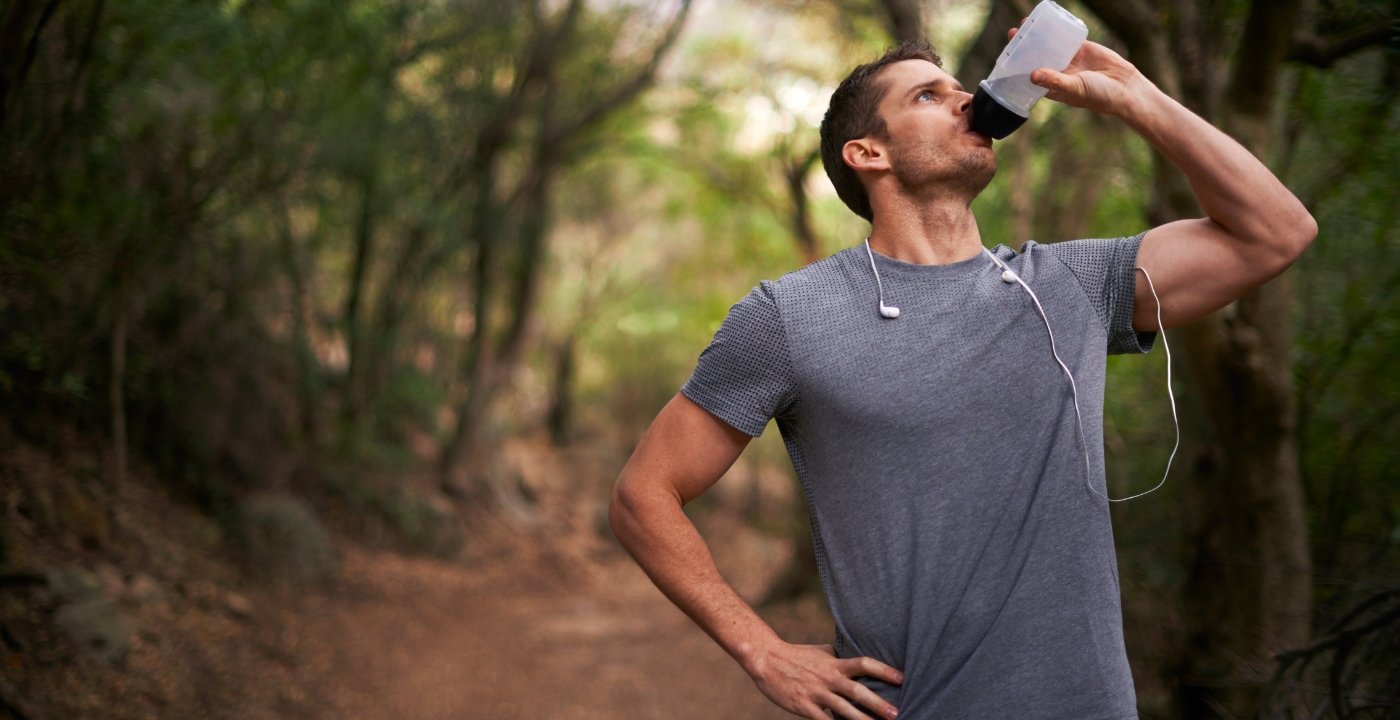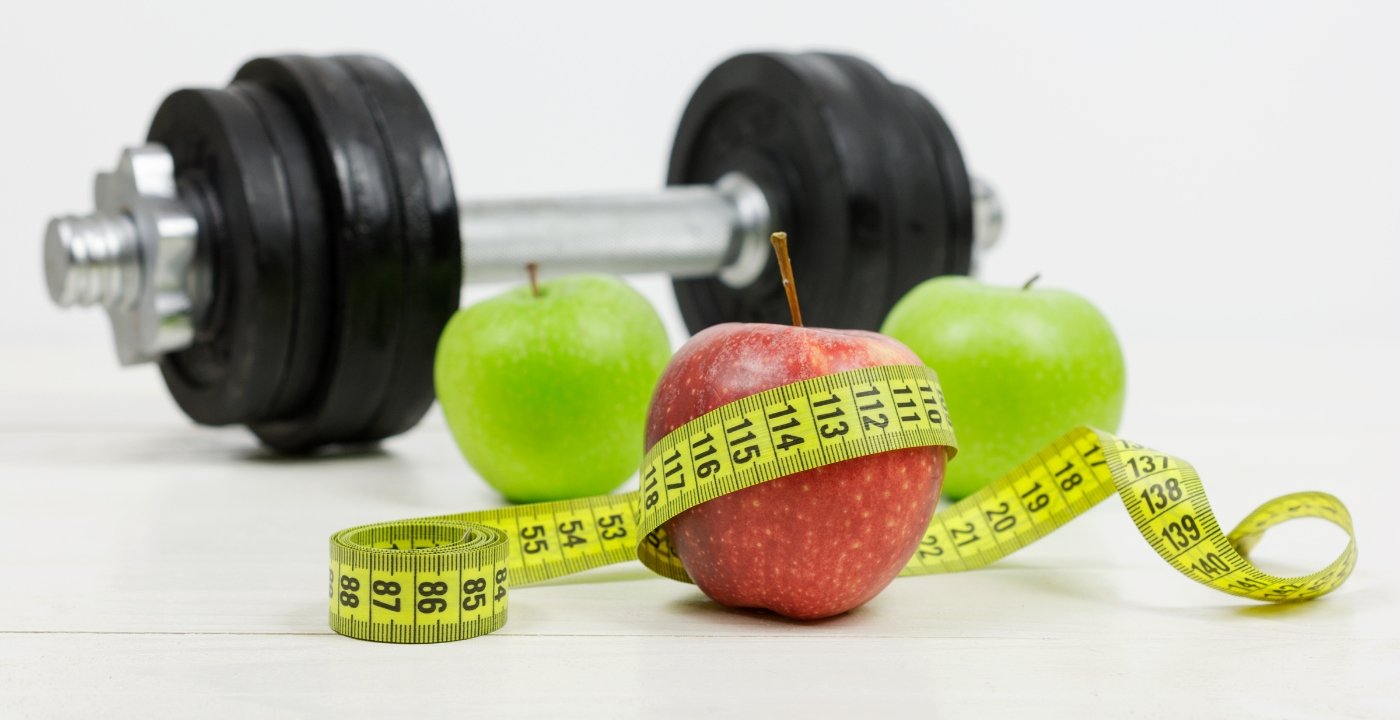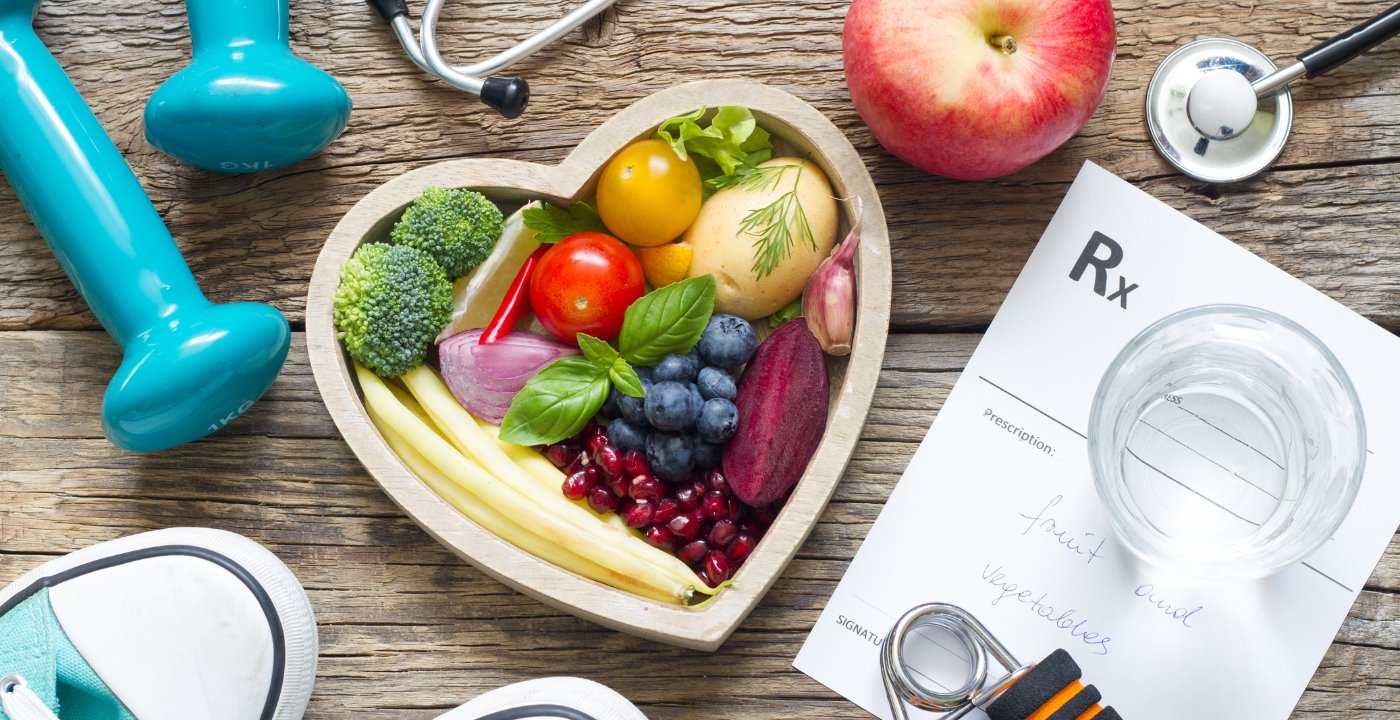Essential Nutritional: A Dietitian's Advice
Essential Nutritional: A Dietitian's Advice
This "Essential Nutritional Tips for Gym-goers in Georgia: A Dietitian's Advice" Guide is invaluable for optimizing their athletic performance, losing weight, and achieving a healthy lifestyle. As you embark on your fitness journey, it is important to grasp the significance of nourishment in enhancing workouts and bettering body composition.
Sports Nutrition and Healthy Eating Advice
This guide will explore the importance of macronutrients such as proteins, carbohydrates, and healthy fats for optimal athletic performance and body composition. Additionally, staying hydrated with water or a sports drink is vital in maintaining peak performance during exercise.
This post will discuss pre-workout fueling strategies involving amino acids to ensure proper energy levels during training sessions. We will also cover post-exercise recovery meals that replenish glycogen stores and promote muscle repair. Lastly, our expert dietitian emphasizes eating balanced meals throughout the day to maintain a consistent supply of nutrients necessary for optimal health to help you lose weight.
1. Understand Your Macronutrients

Knowing the basics of macronutrients is essential for gym-goers looking to achieve their fitness goals at Onelife Fitness. Our bodies need macronutrients, including carbohydrates, proteins, and fats. Each macronutrient is crucial in maintaining overall health and supporting your workouts. We will help you with the best dietary reference intakes for maximum health results.
Carbohydrates: The Primary Energy Source
Carbohydrates serve as the primary source of energy for our bodies during exercise. Carbohydrates can be sourced from foods such as whole grains, fruits, vegetables, legumes, and dairy products. Consuming enough carbs ensures you avoid cardiovascular disease and have enough fuel to power through your workouts at OneLife Fitness without feeling fatigued or sluggish.
Fiber-Rich Carbs
- Whole grains (e.g., brown rice, quinoa)
- Fruits (e.g., apples with skin)
- Veggies (e.g., leafy greens)
- Nuts & seeds (e.g., almonds)
Lean Protein Foods: Building Blocks for Muscle Growth & Repair
Your body needs protein to build and repair muscle tissue after strenuous workouts at Onelife Fitness. High-quality protein sources such as lean meats, fish, plant-based options, eggs, low-fat dairy products, and nuts & seeds can help build and repair muscle tissue after strenuous workouts at OneLife Fitness.
Protein Recommendations
- Endurance athletes: 1.2 - 1.4 g/kg body weight/day
- Strength-training athletes: 1.6 - 2.0 g/kg body weight/day
Fats: Essential for Overall Health & Performance
Fats are crucial for maintaining overall health, providing energy during low-intensity workouts, and supporting hormone production. Healthy fats can be found in foods like avocados, nuts & seeds, olive oil, and the fatty acids in fish. Avoid unhealthy fats such as fried food as much as possible.
Healthy Fat Sources:
- Avocadoes
- Nuts (e.g., almonds)
- Olive oil or coconut oil
- Fatty fish (e.g., salmon)
Incorporating our recommended dietary guidelines with the right balance of macronutrients into your diet will help you achieve a healthy body mass index (BMI), lose excess weight, and reach optimal results at Onelife Fitness by fueling your workouts, promoting muscle growth and recovery, and supporting overall health. Consult with a registered dietitian or nutrition professional if you need personalized guidance on creating a balanced meal plan that aligns with your fitness goals.
2. Hydrate for Optimal Performance

Proper hydration is crucial to achieving your fitness goals and maintaining overall health, especially when participating in rigorous workouts at Onelife Fitness. Staying well-hydrated not only helps improve your physical performance but also aids in regulating body temperature, preventing muscle cramps, and promoting optimal cognitive function.
The Importance of Water Intake During Exercise
When you exercise, your body loses water through sweat and increased respiration. This loss can lead to dehydration if not replenished adequately. Dehydration can harm your mental and physical aptitude, including tiredness, lightheadedness, decreased endurance level, and hindered focus.
Tips for Staying Hydrated Throughout the Day:
- Maintain a consistent water intake: Aim to drink at least eight 8-ounce glasses daily or follow the general guideline of consuming half an ounce per pound of body weight.
- Sip on fluids before exercising: Drink about 16-20 ounces of water two hours before working out to ensure proper hydration levels during exercise.
- Hydrate during workouts: For activities lasting longer than one hour or intense sessions like those offered at Onelife Fitness centers' high-performance training areas (The Zone), consume around seven ounces every ten minutes throughout the workout session.
- Replenish after exercising: Post-workout hydration is essential for recovery; aim to drink approximately twenty-four ounces within two hours following exercise completion.
Electrolytes and Exercise
In addition to water, restoring electrolytes is a critical step for recovery after exercise due to losing these essential minerals in sweat. Minerals like sodium, potassium, calcium, and magnesium are essential for the body to maintain fluid balance and support muscle function - they are known as electrolytes. Intense workouts can lead to a significant loss of these vital nutrients through sweat.
Ways to Replenish Electrolytes:
- Sports drinks: Many sports drinks contain a balanced mix of electrolytes for athletes engaging in high-intensity or prolonged activities.
- Fruits and vegetables: Consuming fruits like bananas or oranges post-workout is an excellent natural way to restore potassium levels. Leafy greens like spinach also provide essential minerals such as magnesium.
- Dairy products: Milk-based beverages offer hydration benefits and calcium content necessary for proper muscle functioning after exercising at OneLife Fitness centers' state-of-the-art facilities (Group Training Zone, Performance Zone).
Incorporating proper hydration habits into your daily routine will significantly enhance your overall fitness experience at Onelife Fitness while promoting optimal health outcomes.
3. Fuel Up Before Exercise

To ensure peak performance and optimal recovery, proper pre-workout nutrition is essential. The right pre-workout snack can make all the difference in how well you train and recover afterward. Here are some essential nutrition tips from our Onelife Fitness nutrition staff on choosing the perfect pre-workout fuel.
Aim for a Balanced Snack
Aim to balance carbohydrates, protein, and healthy fats in your pre-and post-workout snacks for quick energy and sustained muscle growth for optimal performance. Carbs are a source of rapid energy, whereas protein helps develop muscle mass during physical activity. Healthy fats slow digestion, ensuring your body has sustained energy throughout your workout.
Timing Matters
The timing of your pre-workout meal or snack plays an essential role in its effectiveness. Ideally, consume it 30 minutes to 1 hour before exercising so that it doesn't cause discomfort during training but still provides ample time for digestion. Healthline provides valuable information on when to eat depending on the type of workout planned.
Suggested Pre-Workout Snacks:
- Banana with almond butter: This combination offers natural sugars from bananas for immediate energy and healthy fats from almond butter for sustained fuel.
- Greek yogurt with berries: Packed with protein and antioxidants, this delicious combo will help support muscle growth while providing necessary nutrients like vitamin C.
- Oats topped with nuts or seeds: Oats are rich in complex carbs, which break down slowly into glucose - providing long-lasting energy without causing blood sugar spikes - while nuts add healthy fats and protein.
- Whole-grain toast with avocado: The complex carbs in whole-grain bread provide sustained energy, while the healthy fats in avocado help you feel fuller for longer. Avocados boast a wealth of potassium, an integral electrolyte that can help ward off muscle contractions during physical activity.
Pay heed to your body when selecting a snack before exercise. Some people may prefer lighter options like fruit or yogurt, while others might need something more substantial, like oatmeal or toast. Experiment with different snacks and consider how they affect your performance at Onelife Fitness. By fueling up properly before hitting the gym, you'll be on your way toward achieving optimal results from every workout session.
4. Refuel After Exercise

After an intense workout at Onelife Fitness, it's crucial to replenish your body with the right nutrients for optimal muscle recovery and growth. The nutrition staff at Onelife Fitness recommends focusing on two key macronutrients: protein and carbohydrates.
Why Protein is Important Post-Workout
Protein is vital in repairing damaged muscle tissue and promoting new muscle growth. Consuming protein after exercise helps provide your muscles with essential amino acids, which are the building blocks of proteins. Aim for 20-30 grams of high-quality protein within 30 minutes to an hour after your workout.
Sources of High-Quality Protein:
- Whey protein shakes
- Grilled chicken breast
- Greek yogurt or cottage cheese
- Tofu or tempeh (for plant-based options)
The Role of Carbohydrates in Recovery
Post-workout, consuming carbohydrates in a 1:1 ratio with proteins is essential to replenish depleted glycogen stores and ensure adequate energy for future workouts and daily activities. This ensures you'll have enough energy for future workouts and daily activities. Aim to balance proteins and carbs when selecting your post-workout nutrition after-exercise meals.
Examples of Carbohydrate Sources:
- Quinoa
- Brown rice or whole-grain pasta
- Sweet potatoes or yams
- Fresh fruits like bananas, berries, and apples
Putting It All Together: Post-Workout Meal Ideas
To optimize post-exercise nutrition, include proteins and carbs in a well-balanced dish. Here are some delicious and nutritious ideas to get you started:
-
A whey protein shakes with a banana and almond milk.
-
A wholesome meal of grilled chicken atop a bed of leafy greens, quinoa, creamy avocado slices, and cherry tomatoes.
-
A Greek yogurt parfait topped with granola, fresh berries, and honey.
-
Tofu stir-fry with brown rice, colorful veggies, and low-sodium soy sauce.
Incorporating these nutrient-rich meals into your post-exercise routine will help support muscle recovery, growth, and overall fitness progress, say health professionals at OneLife Fitness. Remember to stay hydrated with sports drinks and maintain a healthy lifestyle with good nutrition and healthy fats to optimize your athletic performance and body composition.
5. Eat Balanced Meals Throughout the Day

Maintaining your vigor, healthy weight, bolstering muscle recuperation, and sustaining general well-being all necessitate a balanced diet throughout the day. A well-rounded diet should include a variety of foods from all food groups to provide you with the necessary nutrients your body needs.
A. Include Protein in Every Meal
Protein is crucial in building and repairing muscles after workouts at Onelife Fitness. Aim to take in proteins from poultry, fish, eggs, dairy products, legumes, or tofu with each meal. Gym-goers typically need more protein than inactive ones based on age, sex, and activity level.
B. Don't Forget Your Fruits and Vegetables
Fruits and vegetables are packed with vitamins, minerals, and antioxidants that help support immune function and reduce inflammation caused by exercise-induced stress on the body. Make sure to incorporate at least five servings of fruits or vegetables into your daily diet - think colorful salads or smoothies made with leafy greens.
C. Opt for Whole Grains Over Refined Carbohydrates
Whole grains such as brown rice, quinoa, or whole wheat bread contain more fiber than their refined counterparts like white rice or white bread - this helps keep you fuller longer while providing sustained energy release throughout the day. Additionally, whole grains provide essential nutrients like B vitamins and minerals important for good nutrition.
D. Choose Healthy Fats
Healthy fats, such as those found in avocados, nuts and seeds, olive oil, or fatty fish like salmon, are essential for optimal brain function and hormone production. Incorporate these healthy fat sources into your meals to support overall health while working out at Onelife Fitness.
E. Plan Your Meals Ahead of Time
To ensure you're eating balanced meals throughout the day, consider planning your meals ahead - this can help prevent last-minute unhealthy food choices when hunger strikes. Utilize meal prep strategies like batch cooking proteins or grains on weekends to make assembling nutritious meals during the week breeze.
F. Listen to Your Body's Hunger Signals
Pay attention to your body's hunger signals and eat accordingly - not too much nor too little. Overeating can lead to weight gain, while undereating may result in decreased energy levels, weight loss, and hindered workout performance at Onelife Fitness. Find the best balance for you by listening closely to your body's needs.
FAQ- Essential Nutritional Tips for Gym-Goers
What is our healthy diet advice for fitness?
The key to a successful fitness diet is balance and moderation. Consume various nutrient-dense foods, including lean proteins, complex carbohydrates, healthy fats, fruits, and vegetables. Stay hydrated by drinking plenty of water throughout the day. Fueling up before exercise and refueling with appropriate nutrients is also essential.
What is the most important nutrition for the gym?
Protein is crucial for gym-goers as it supports muscle growth and repair after workouts. Aim to consume 1.2-2 grams of protein per kilogram of body weight daily from sources like chicken, fish, eggs, beans, or protein powders.
What are the 7 essential nutrients that are recommended for a diet and lifestyle?
-
Carbohydrates
-
Fats
-
Proteins
-
Vitamins
-
Minerals (e.g., calcium)
-
Dietary fiber
What are some of the best nutrition advice that you know?
- Eat whole foods instead of processed ones.
- Avoid added sugars in your meals.
- Incorporate more plant-based options into your diet.
- Maintain portion control when eating out or at home.
- Add color to your plate with various fruits & veggies.
Conclusion
Overall, following essential nutritional tips for gym-goers in Georgia is crucial to achieving optimal fitness results. Understanding macronutrients, hydrating correctly, fueling up before exercise, refueling after exercise, and eating balanced meals throughout the day can give your body the nutrients it needs to perform at its best.
Remembering that a healthy diet is as important as regular exercise when reaching your fitness goals is essential. Consult a registered dietitian or nutritionist if you need help creating a personalized meal plan that fits your lifestyle and fitness routine.
Contact Onelife Fitness for all your fitness questions and gym classes across the East Coast. We look forward to helping you on your health and fitness journey!